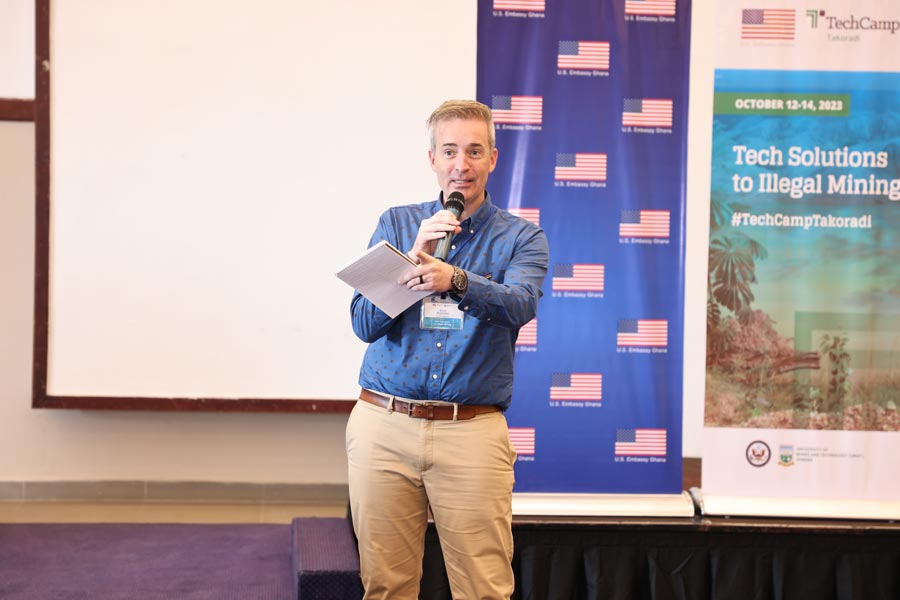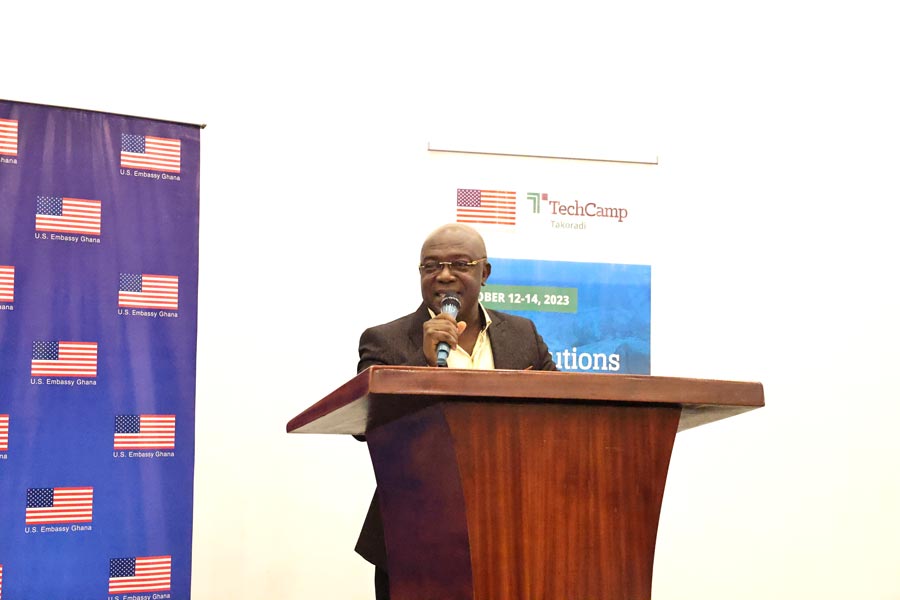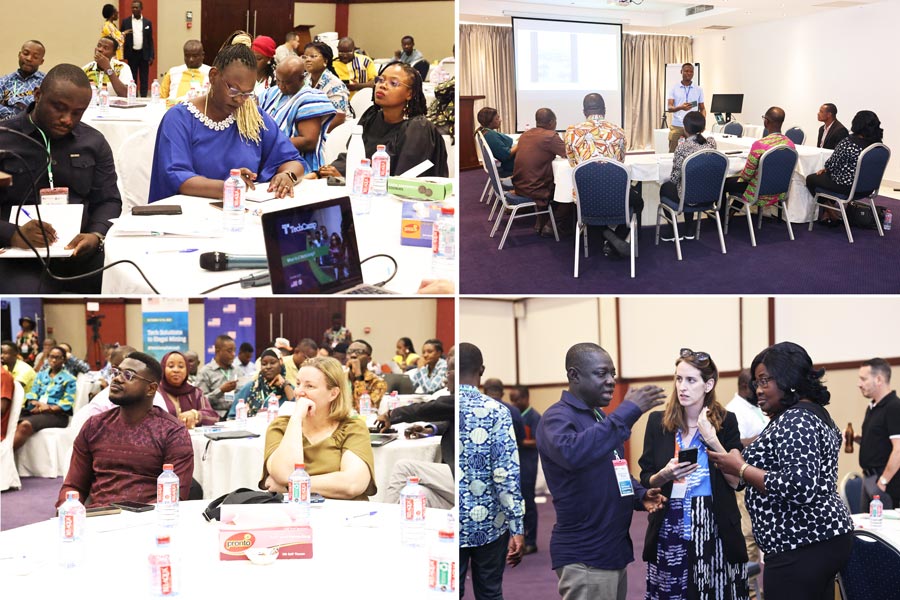U.S. Embassy Partners UMaT in a TechCamp to Tackle Illegal Mining
The Office of Research, Innovation and Consultancy (ORIC), in collaboration with the U.S. Department of State and the U.S. Embassy in Ghana, convened stakeholders across Ghana and Africa for a 3-day workshop dubbed “TechCamp”. The Workshop which was organised from the 12th to 14th October, 2023 at the Best Western Hotel in Takoradi gathered participants and trainers from various sectors to leverage cutting-edge technologies such as artificial intelligence, geographic information systems, remote sensing, satellite data and tools provided by the U.S. Agency for International Development.
 Mr Kevin Brosnahan - Public Diplomacy Officer -U.S. Embassy
Mr Kevin Brosnahan - Public Diplomacy Officer -U.S. Embassy
Addressing the participants during the launch of TechCamp, Mr Kevin Brosnahan, the Public Diplomacy Officer at the U.S. Embassy indicated that the U.S. funds TechCamp workshops in countries around the world to connect participants with technology experts to co-create innovative tech solutions for world challenges. He said that the U.S. Embassy in Ghana has been actively involved in various initiatives to improve the country's mining sector by collaborating with regional development partners to encourage mercury-free gold production, allocating funds for piloting mercury-free processing technologies, and educating miners on the business advantages of responsible mining practices.
Mr Brosnahan however stated that despite efforts to counter negative mining practices, there are no clear-cut rules on how best to tackle the problem of illegal mining. Thus, illegal small-scale mining in Ghana continues to be a major cause of deforestation and pollution as well as poses serious health challenges and has contributed to the increased number of school dropouts in mining communities. This, Mr Brosnahan said has resulted in challenges of sustainable development. It is for this reason that Mr Brosnahan said, informed the U.S. Embassy in Ghana to assemble international technology experts to assist Ghanaian stakeholders in finding sustainable practices that protect the environment and support mining communities.
 Professor Richard Amankwah - Vice-Chancellor - UMaT
Professor Richard Amankwah - Vice-Chancellor - UMaT
Also speaking at the opening ceremony was the Vice-Chancellor of the University, Professor Richard Amankwah. He said that discussions about the small-scale mining sector in Ghana usually come with mixed reactions as the industry has impacted both positively and negatively to development. According to Professor Amankwah, small-scale mining is an important industry and has a significant bearing on socio-economic development because it creates employment for the youth in mining communities and also provides the needed capital to develop communities. Professor Amankwah said that looking at the pockets of rich reserves in Ghana, the small-scale mining industry is needed since large-scale mines do not have the capacity to explore all the mineral resources. He further underscored the downsides and dangers associated with illegal and irresponsible small-scale mining practices and stressed the need for resolute commitment from all stakeholders to tackle the issue.
Professor Amankwah said that finding technological solutions to the challenges associated with the small-scale mining sector is key to the survival of the industry. He expressed appreciation to the United States Department of State and the US Embassy in Ghana for partnering with the University and expressed optimism that participants in the TechCamp will develop technology-driven solutions that could address illegal mining activities in the country that will positively affect the mining sector.
Participants of the Tech Camp included researchers, scientists, innovators, policymakers, public health actors, associates of the mining industry, and the media.












